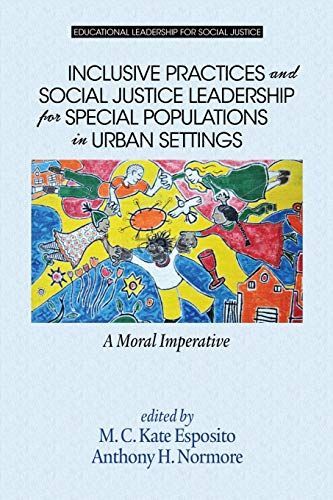
Inclusive Practices and Social Justice Leadership for Special Populations in Urban Settings A Moral Imperative
Inclusive Practices and Social Justice Leadership for Special Populations in Urban Settings: A Moral Imperative is comprised of a collection of chapters written by educators who refuse to let the voices of dissent remain marginalized in our discussion of education in the 21st century education. Drawing from the authors’ extensive experience in educational research and practice, coupled with their commitment to inclusion of special populations and social justice they urge readers to examine how educational policies are produced for the least advantaged in our schools. Effective inclusionary practices most certainly benefit all students, including English language learners, those who face gender discrimination, those who are in the foster care system, and those who are Gay, Lesbian, Bisexual, or Transgendered. This collection presents a broader theoretical inclusive framework rooted in social justice: which we assert, offers the best practices for a greater number of students who are at risk of minimal academic success. This broader conceptualization of inclusive schools adds to extant discourses about students with exceptional needs and provides effective strategies school leaders operating from a social justice framework can implement to create more inclusive school environments for all students, especially those in urban centers. It is hoped that lessons learned will improve the preparation and practice of school leaders, thus improve educational outcomes for students from special populations.